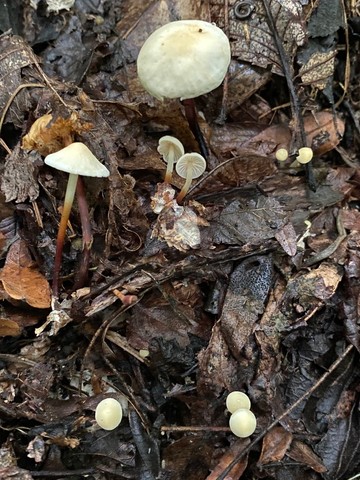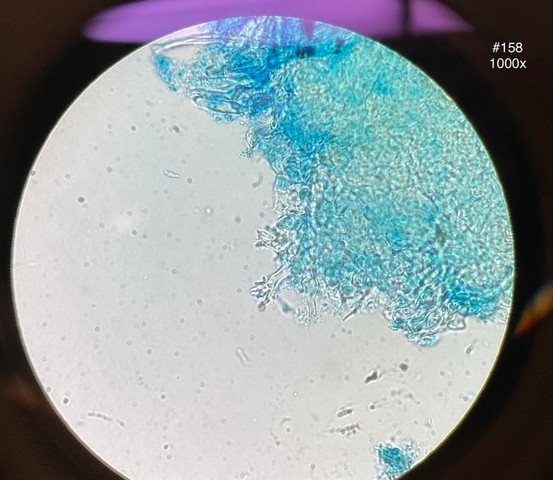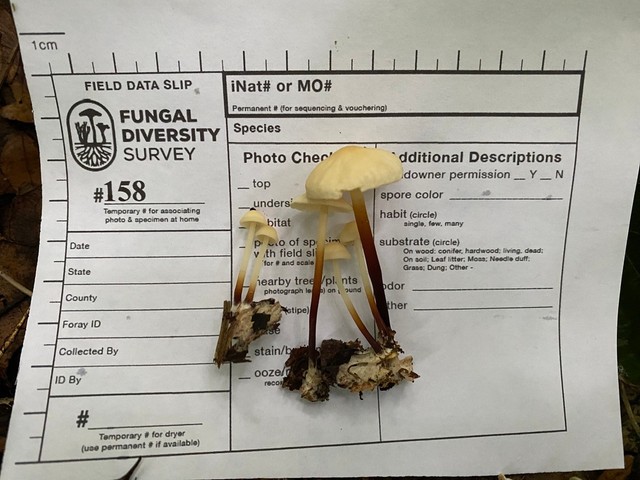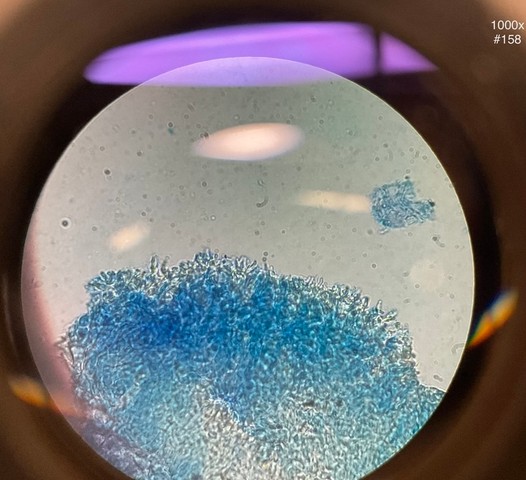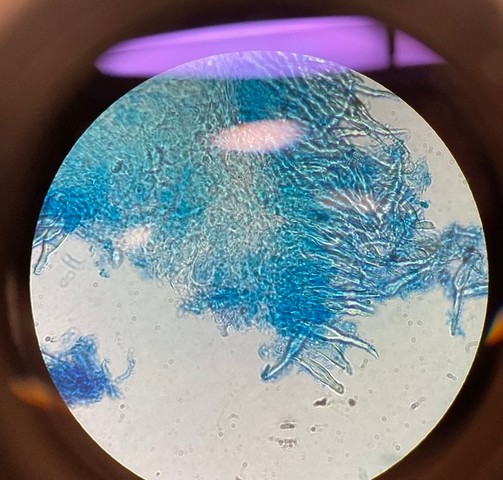Marasmius delectans
Life > Fungi > Basidiomycota > Agaricomycotina > Agaricomycetes > Agaricomycetidae > Agaricales > Marasmiineae > Marasmiaceae > Marasmius
Description
Marasmius delectans is a decomposer of woody debris and woodland duff and can be found in the late summer through fall. It features a whitish pale-yellow cap with minute stripes or pleats. The stem offers a beautiful color transition from black, to dark red, to orange, whitish from the stem base to the stem apex. The gills are pale yellow and are attached to the stem and break free at maturity (seceding). The spore print is white.
An interesting microscopic feature of this mushroom are sterile shapes that can be found on the gills known as broom cells. These cells look like a bundle of fingers on the end of a knob that sorta looks like a broom. Maybe someday we will learn what purpose (if any) these cells have. It has been suggested that non-reproductive cells on the gills are used as microscopic spacers between the gills to give the reproductive cells enough space to disperse spores without getting trapped.
Observations
July 6th, 2023 Indian Cave State Park
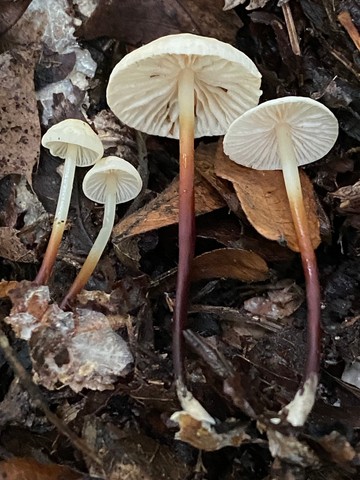
#158
Growing gregariously (locally abundant) amount oak woodland duff in low riparian area near creek. Oak trees just up slope nearby.
Marasmioid. Stipe elastic, white at apex transitioning through orange and red then gradually black at stipe base. Cap white near margins with a slightly yellow center. Margin slightly striated.
Taste: phenolic smell: slightly phenolic initially, later changing to cocoa-fishy (unique!)
Added two additional specimens that were found near (159)
AAGTCGTAACAAGGTTTCCGTAGGTGAACCTGCGGAAGGATCATTATTGAAACATTGTAAAGGAAGGTTGAGCTGGCTCTTCTAGGGGCAAGTGCTCGCCTTTCTTTCAATCTTCATCCACCTGTGCACTTTTTGTAGGAAGTCTGAGAAATGAAACGGACCTTGTAACAGAGTGTCTTTTTCACTATCGGGCTTTCTATGTCTTTAACACACTCTGTATGTTTTTGAATGTCTTTTATAAGGGACTTAGTTGGCCCTTTTAAACAAACTATACAACTTTCAGCAACGGATCTCTTGGCTCTCGCATCGATGAAGAACGCAGCGAAATGCGATAAGTAATGTGAATTGCAGAATTCAGTGAATCATCGAATCTTTGAACGCACCTTGCGCCTCTTGGTATTCCGAGAGGCATGCCTGTTTGAGTGTCATTAAATTCTCAACCTCAAAAGCTTTTTGTTTCTGAGGCTTGGATGTGGAGGCTTTTTTGCTGGCTCGCTCAGAGTCGGCTCCTCTTAAATGCATTAGTGGAAACTGTTTGTAGTCCGCATTGGTGTGATAATTATCTGCGCCATTGTATTTGTGGCTACAGCTCTTGTAGTGTTCGTTTGGAAAGCTGCATGAACTTGCTCTTTCTGATTTAGTTGACCTGCAAGAGTTAGTATTCGCTTCAAACCGTCCTAAGTCGCTGGACAGCACATTGATTATTTTGACCTCAAATCAGGTAGGACTACCCGCTGAACTTAAGView MycoMap DNA Results
References
Kuo, M. (2013, January). Marasmius delectans. Retrieved from the MushroomExpert.Com Web site: http://www.mushroomexpert.com/marasmius_delectans.html
Created December 15, 2025 at 10:41 AM
